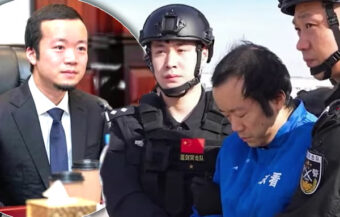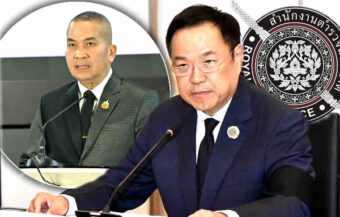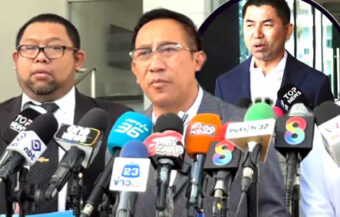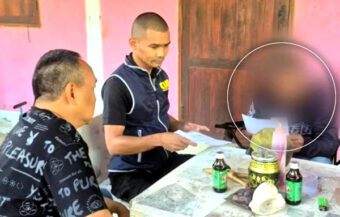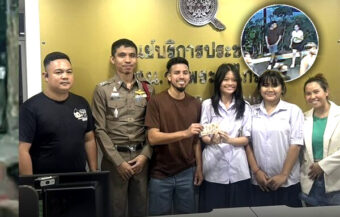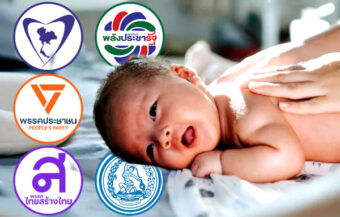Bank of Thailand officials warn of uncertain economic outlook for the second half of 2025, with growth potentially dipping to 1.3%. While inflation remains under control, the new G-Token project raises concerns. Economic resilience hinges on global trade talks.
Top Bank of Thailand officials stated on Wednesday that the economic outlook for the second half of 2025 remains uncertain. However, they emphasized that despite low inflation data, there are no signs of deflation in the Thai economy. Notably, the country’s economy grew in the first quarter, with exports continuing to rise at that time. With US-China trade talks underway and a 90-day pause, the outlook has become more optimistic. Nevertheless, economic growth for this year is expected to fall between 1.3% and 2.9%. With interest rates currently at 1.75%, there is limited room for manoeuvre if the economy faces a downturn after June. Additionally, top officials issued a warning regarding the government’s new Digital Token (G-Token) project. Launched by the Ministry of Finance this week, the initiative expects an investment of ฿5 billion. Officials emphasized that the new tokens should not be used as negotiable instruments, particularly for payments.

The Bank of Thailand (BOT) has confirmed that deflation is not a concern in the country. However, it is deeply worried about the economic outlook, particularly the impact of the ongoing trade war on investment and exports. BOT officials are focusing on the second half of 2025, predicting sharp declines in these areas.
Mr. Piti Disyatat, Deputy Governor for Financial Stability at the BOT, spoke clearly at the Monetary Policy Forum 1/2025. He emphasized that both the Thai economy and the global economy are dealing with significant uncertainty. “We must approach monetary policy with great caution,” Mr. Disyatat stated.
Officials emphasize the need to preserve monetary policy tools for more effective use in the future
Currently, the interest rate stands at 1.75%. While there is little room left for cuts, Mr. Disyatat warned that further reductions would likely have little effect. “There is not much potential left,” he said. “When uncertainty is high, people and businesses don’t want to spend or invest, so lower interest rates won’t drive growth.”
He made it clear that monetary policy tools should be preserved for future use when they might be more effective. “We need to keep some policy space for times when it’s truly needed,” he explained.
Mr. Sakkapop Panyanukul, Assistant Governor of the Monetary Policy Group, added that the trade war’s impact is becoming more evident. “Investment is already slowing down due to uncertainty,” he said. The worst effects, he believes, will be seen in the latter half of 2025 and into 2026, particularly in export sectors targeting the U.S. and small to medium enterprises (SMEs) linked to production and imports.
“Thailand must adjust to the new global economic structure,” Mr. Panyanukul said. He also noted that the Thai economy’s growth potential is expected to be below 3% this year, lower than initially anticipated. “If there’s no adjustment, it could affect long-term potential,” he warned.
Certainly, a recent Monetary Policy Committee suggested that growth could even dip to 1.3% if negotiations with the United States do not fare well.
Thai economy shows some resilience despite ongoing challenges, with improvements expected from trade talks
Mrs. Pranee Sutthisri, Senior Director of the BOT’s Macroeconomic Department, painted a less grim picture. She acknowledged that while the global trade situation poses risks, the recent U.S.-China trade negotiations brought some relief.
“The U.S. and China have agreed to reduce tariffs temporarily, which is a positive sign for both the global and Thai economies,” she said.
The BOT sees the reduction in tariffs as a temporary but welcome break. “It will help Thai exports to China and reduce some of the pressure on our economy,” Mrs. Sutthisri stated. However, she clarified that the impact on Thailand’s GDP would be modest, estimating a 0.1% increase. “It’s a short-term gain. We must remain cautious,” she added.
The Thai export sector remains a mixed bag. Some industries, like processed food, machinery, and automotive parts, will face continued challenges. “These sectors will feel the effects of the trade war and changing global dynamics,” said Mrs. Sutthisri. However, the electronics sector appears to be relatively unaffected. “They’ve not been impacted by tariffs yet,” she said.
Small and medium enterprises face tough competition. BOT urges support for adaptation and market expansion
Small and medium enterprises (SMEs) in textiles, furniture, and electrical appliances are especially vulnerable. Ms. Sutthisri noted, “Textiles and clothing employ over 430,000 people in Thailand. They face increased competition from imports.”
She urged for more support, both financially and through stronger enforcement against counterfeiting. “SMEs need help to adapt and find new markets,” she said.
Inflation continues to be closely monitored by the BOT. Mr. Surach Tanboon, Senior Director of the Monetary Policy Department, confirmed that headline inflation is expected to fall below the target range.
This is primarily due to the drop in global oil prices and government measures to ease living costs. “Headline inflation will fall below the target,” Mr. Tanboon said. However, medium-term inflation remains within the BOT’s target range of 1-3%. “Inflation is expected to stabilize at around 1.6%,” he said.
Mr. Tanboon also confirmed that the decline in inflation does not signal deflation. “We haven’t seen signs of deflation, which is a broad and significant contraction in prices,” he explained. The current situation, according to him, is manageable.
Bank of Thailand voices concerns about government’s G-Token project, warns against using it as a payment tool
In addition to its economic challenges, the BOT has voiced concerns about the government’s new G-Token initiative. The Ministry of Finance plans to raise funds through the Thailand Digital Token (G-Token) project, allocating ฿5 billion for the effort.
Mr. Sakkapop Panyanukul explained that the G-Token is a fundraising tool similar to government bonds. “It should be treated like government bonds,” he said. “A secure, legal framework is necessary to protect the public.”
Mr. Panyanukul also warned against using the G-Token as a payment instrument. “The G-Token is a tool for raising funds, not for everyday transactions,” he stressed. He emphasized that if public confidence in the system falters, it could undermine trust in government bonds. “We must ensure that the public has confidence in the G-Token,” he said.
BOT remains cautious with monetary policy, balancing immediate support and future risk mitigation
The BOT is being cautious with its monetary policy. Mr. Disyatat summarized, “We have to balance supporting the economy now with preparing for future risks.”
While the current policy is designed to keep the economy afloat, it remains flexible. “We will adjust our approach as the situation evolves,” he said.
Top economist warns Thailand must get talks going with United States after US-China 90-day pause is unveiled
Prime Minister Paetongtarn visits Vietnam this week as Hanoi readies to surpass Thailand’s ailing economy
The BOT is not relying solely on interest rate cuts to drive economic growth. Instead, it is monitoring global conditions, including the trade war and inflation, and adjusting its approach as needed.
Join the Thai News forum, follow Thai Examiner on Facebook here
Receive all our stories as they come out on Telegram here
Follow Thai Examiner here
Further reading:
Thaksin does not rule out joining talks in US as Thai team finalises plans. They fly out on Thursday




